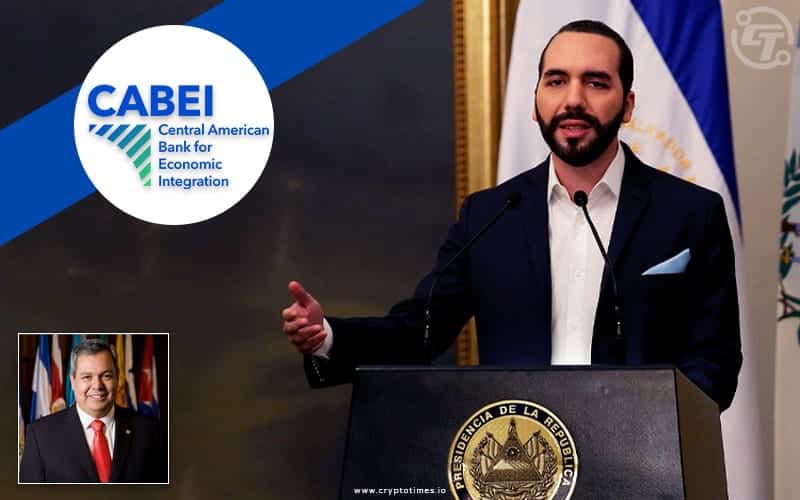The head of the Central American Bank of Economic Integration (CABEI), Dante Mossi, said that the bank will give technical assistance to El Salvador to implement bitcoin as a legal tender.
Last week, El Salvador became the first country to pass a law making bitcoin as a legal tender. (internal link) Mossi said that the move will open up more opportunities for Salvadorans.
“The president of the Central American bank (@BCIE_Org), a bank with $13.5 billion in assets, supports our BitcoinLaw,” Bukele wrote on his Twitter account.
“Accompanying El Salvador in its deepest monetary reform since dollarization,” Dante Mossi wrote with the publication that reports on a press conference.
The CABEI came forward to help El Salvador with the technicalities of Bitcoin implementation as a legal tender. Dante Mossi said they would select the first technical group that would work with the Salvadorian government to implement necessary changes. Technical group will include members of CABEI, and El Salvador’s Ministry of Finance, as well as country’s central bank.
“The signal that I want to leave you today is that the CABEI is accompanying El Salvador in this new and innovative policy of adopting the cryptocurrency called Bitcoin for legal use,” said Mossi.
According to Mossi, the adoption of bitcoin will lower the cost of remittances Salvadorans send home from abroad. However, there are chances that bad player might take advantage of bitcoin’s anonymity, so regulations are required. CABEI is looking at global best practices to replicate in El Salvador, Mossi said.
Also Read: Bitcoin Mining with Volcano in El Salvador
El Salvador will purchase $150 million of Bitcoin from its treasury and promote BTC use in the country among merchants and vendors. However, the bank didn’t get any request from the government for financial support for the $150 million trusts.
“If we already know that cash is knocking on its exist door and that we have to move to cryptocurrencies, we have to do it securely,” Mossi said.
CABEI was founded in 1960 by Guatemala, El Salvador, Honduras, Nicaragua, and Costa Rica and works as a multilateral development financial institution.







